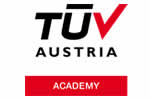CARBON BORDER ADJUSTMENT MECHANISM (CBAM)
 This training session provides an in-depth understanding of the Carbon Border Adjustment Mechanism (CBAM), a key component of the European Union’s strategy to reduce carbon emissions and combat climate change. CBAM aims to prevent “carbon leakage” by ensuring that imported goods are subject to the same carbon costs as products manufactured within the EU.
This training session provides an in-depth understanding of the Carbon Border Adjustment Mechanism (CBAM), a key component of the European Union’s strategy to reduce carbon emissions and combat climate change. CBAM aims to prevent “carbon leakage” by ensuring that imported goods are subject to the same carbon costs as products manufactured within the EU.
The CBAM training, part of the “GHG emissions Training” aims to equip participants with a comprehensive understanding of the Carbon Border Adjustment Mechanism and its implications for businesses and trade. Attendees will learn about the objectives and mechanics of CBAM, compliance requirements, and strategies for managing its economic impact. Through case studies and practical exercises, participants will gain hands-on experience in developing and implementing compliance strategies, ensuring they are well-prepared to navigate this complex regulatory environment.
Scope of the Training
1. Stay Compliant with Regulations:
– Understand the legal requirements and ensure your business adheres to new regulations, avoiding potential fines and penalties.
2. Mitigate Financial Risks:
– Learn how CBAM affects carbon pricing on imports and exports to better manage financial impacts on your business operations.
3. Enhance Trade Competitiveness:
– Gain insights into how CBAM influences global trade dynamics, helping your business remain competitive in international markets.
4. Promote Sustainability:
– Align your business strategies with environmental goals and contribute to reducing global carbon emissions.
5. Adapt to Policy Changes:
– Stay informed about the latest developments in environmental policy and be prepared for future regulatory changes.
6. Improve Reporting and Monitoring:
– Acquire skills in accurate carbon emissions reporting and monitoring, ensuring transparency and accountability.
7. Strategic Planning:
– Develop effective strategies for incorporating CBAM considerations into your business planning and operations.
8. Industry Best Practices:
– Learn from case studies and best practices on how other businesses are successfully adapting to CBAM requirements.
9. Expert Guidance:
– Receive expert advice and practical tips from trainers experienced in environmental regulations and carbon management.
Proposed Participants
Environmental Compliance Officers: To ensure adherence to new regulations and carbon pricing mechanisms.
Trade and Logistics Managers: To understand the impact of CBAM on import and export operations.
Sustainability Professionals: To integrate CBAM considerations into broader sustainability strategies.
Policy Makers and Regulators: To gain insights into the development and implementation of carbon border policies.
-Industry Representatives (e.g., Manufacturing, Energy): To prepare for compliance and strategic adjustments in response to CBAM.
Legal and Financial Advisors: To advise clients on the legal and economic implications of CBAM.
Στοιχεία σεμιναρίου
| Έναρξη | 14-02-2025 09:00 |
| Λήξη | 14-02-2025 16:00 |
| Χωρητικότητα | Απεριόριστο |
| Τιμή ατόμου | Κατόπιν επικοινωνίας |
| Διοργανωτής | TÜV Austria Academy |
| Τόπος διεξαγωγής | Εξ' αποστάσεως |
| Πόλη | Εξ' αποστάσεως |











